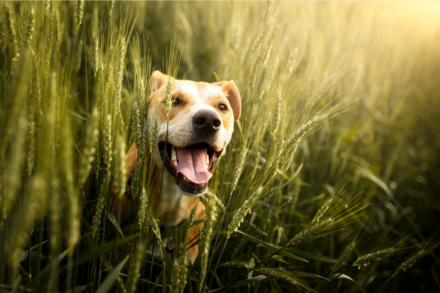GARC’s year in review: 2024

As the Global Alliance for Rabies Control advances its mission to support rabies control and elimination around the world, 2024 proved to be an industrious year and we are privileged to be able to reflect on several noteworthy achievements, new initiatives and successful collaborations. Most importantly, alongside our partners, supporters and the public, we endeavored to improve and update our suite of tools and resources in support of existing and new programs, with a renewed focus on the importance of communities against rabies around the world.
Our long-standing partnership with the Food and Agriculture Organization (FAO) continued with two additional Stepwise Approach towards Rabies Elimination (SARE) workshops in Benin and Mozambique. These SARE workshops remain ever evolving, with this year seeing the inclusion of new components and working sessions as we seek to optimize valuable time spent together and to ensure the best possible support to countries aiming to develop or revise their rabies elimination plans.
World Rabies Day, held on September 28 each year, was the most successful to date. The 2024 theme, ‘Breaking Rabies Boundaries’, was echoed around the world, resulting in a record-breaking 412 events being registered. Such remarkable uptake demonstrates an increasing engagement from communities, organizations, governments and international partners to come together and eliminate this preventable disease. Boehringer Ingelheim, a long-standing advocate of WRD, once again supported the World Rabies Day awards with 4 new champions being recognized for their exceptional work in driving rabies elimination efforts in their communities.
Our continued engagement at the international level within the rabies community included our participation at the United Against Rabies (UAR) Annual meeting as well as our contribution to the UAR podcast series in an episode focusing on communities. In addition, among multiple webinars and online engagements, the GARC team contributed key presentations and keynote addresses at various international conferences, including the JSMAT in Tunisia, the Rabies in Borneo conference and the International Rabies seminar in Madagascar. Moving beyond the rabies-specific world, GARC presented at the International Society for Neglected Tropical Diseases (ISNTD) webinar series on community engagement and the GARC Data Platform. GARC continues to remain engaged at the Neglected Tropical Disease (NTD) and animal health level through our active participation in the NTD NGO Network (NNN) One Health group and the Action for Animal Health coalition. This year, GARC was also officially engaged as a full member of the PREZODE network and one of our team members was selected to be a member of the Pillar working group on ‘Developing a Prototype global information system for surveillance and early detection’.

In addition to our scientific and stakeholder engagements, we continued to strengthen the engagement of individuals, especially through our newsletter and social media channels. To boost our engagements beyond our community of followers and like-minded individuals who are passionate about rabies elimination, we launched the Rabies Ambassadors (RA) program, thanks to the support of Bavarian Nordic. The RA program engages with public figures and personalities to become ‘Ambassadors’ for rabies elimination, spreading key messages about rabies elimination, dog welfare and bite prevention in a positive light with the purpose of engaging more people around the world. Our Ambassadors kicked off with a busy schedule, including multiple interviews, Instagram Live events, social media posts and even an in-person event.
At the national level, the GARC team remained actively involved in supporting national rabies elimination efforts, specifically in Namibia and South Africa, where our team participated in the annual stakeholder meeting and the Rabies Advisory Group respectively. Our continued support of the rabies elimination work in Zanzibar resulted in the deployment of the RAIDER toolkit, and a peer-reviewed paper describing the value of this approach was particularly well accepted in the broader scientific domain. We initiated new collaborations in Ukraine, where GARC is collaborating with the World Health Organization Ukraine country office to support rabies elimination efforts in the current challenging environment. GARC specifically supports the implementation of monitoring and surveillance efforts through the GARC Data Platform (formerly the Rabies Epidemiological Bulletin). In the Philippines, the GARC team partnered with Boehringer Ingelheim and the local government to deliver a mass rabies vaccination and education campaign in Puerto Galera.
GARC continued to innovate with the development of new tools and resources. The Dog Welfare Certificate (DWC) course became the 5th course available on the GARC Education Platform (GEP) and we have already reached over 350 graduates in the short time since it was launched. This is a huge win for dog welfare and highlights the keen interest of people to help dogs, including the prevention of rabies. We also developed a new tool on the GARC Data Platform (formerly the Rabies Epidemiological Bulletin) namely the Biting Animal Quarantine (BAQ) tool. The Vaccination Budgeting Aide tool was also created for organizations and stakeholders to accurately calculate the estimated cost per dog vaccinated. With the support of the British government, a model version of the Rapid Response Toolkit for Rabies was created. This toolkit facilitates a One Health approach for national rabies surveillance in countries, and allows for the customization of each country’s unique needs, based on their situational analysis.
In line with our mission to build capacity and support community stakeholders, the Communities Against Rabies (CAR) initiative continued to grow in its second year. We reached a significant milestone of 1 000 recognized Bronze Dog Health Champions. With the launch of the DWC course, the Silver tier was subsequently launched and we have already reached over 100 Silver Dog Health Champions. More Rabies Centers of Excellence (RCEs) have been recognized and the CAR initiative was recently expanded globally. With this, we have now recognized 17 Rabies Centers of Excellence around the world and continue to engage more exceptional organizations delivering rabies elimination efforts. To promote the RCEs, GARC started a dedicated Instagram End Rabies Now channel and uses this to actively promote their work.
On a more aesthetic note, the GARC team has continued to work to improve our accessibility to our audiences, partners and stakeholders. We continued to work on our branding to make GARC and our work more visible and to make the tools and resources that we offer more readily available and accessible. The GEP underwent a rebranding, while the Rabies Epidemiological Bulletin was renamed to the GARC Data Platform to more accurately reflect the tools we offer. Alongside this, the GARC Data Platform also got a facelift, with new branding, including eye-catching icons for each tool.
The small but industrious GARC team will continue to build capacity and support rabies elimination efforts globally in 2025 and we look forward to your engagement and continued support as we progress towards a rabies-free world together. The GARC team would like to thank you for your ongoing support and wish you a happy holiday season and new year.